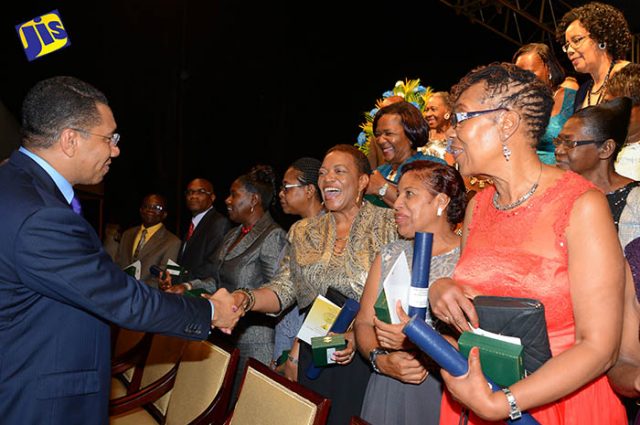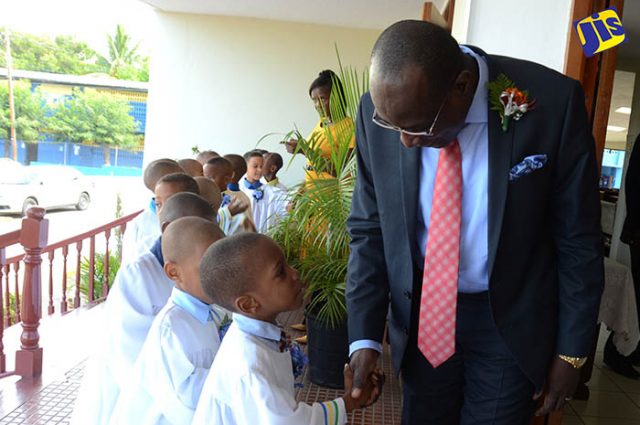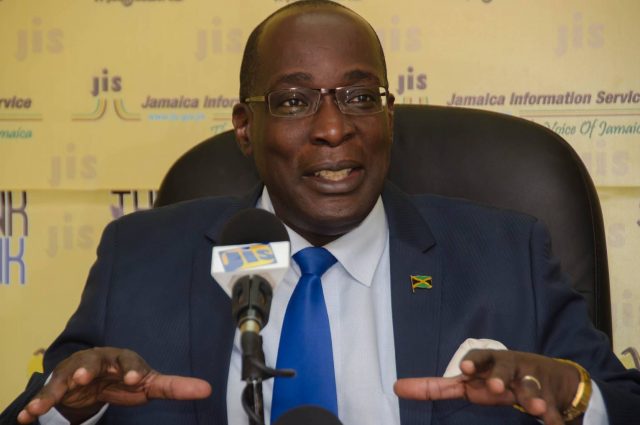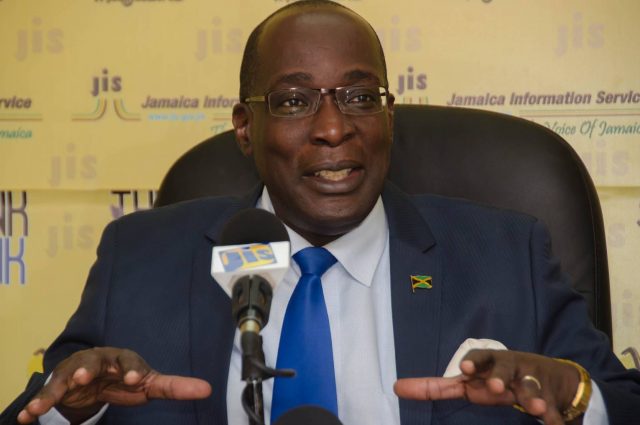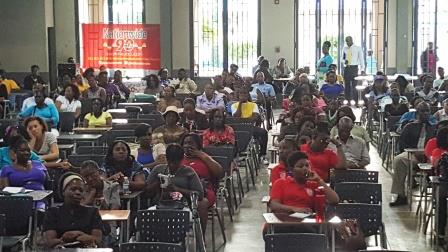National Child Month Broadcast by Hon. Floyd Green
State Minister, Ministry of Education, Youth & Information
for National Child Month Celebrations May 2016
Fellow Jamaicans,
All children deserve to grow up in a caring and loving environment — yet, across Jamaica, thousands of children are neglected or abused each year, often causing lasting consequences. Although effectively intervening in the lives of these children and their families is an important responsibility at all levels of government, preventing abuse and neglect is a shared obligation.
During Child Month, we recommit to working towards giving every child a chance to succeed and to ensure that every child grows up in a safe, stable, and nurturing environment that is free from abuse and neglect.
In 2014, the Office of the Children’s Registry received 8450 reports of sexual, emotional and physical abuse combined with 5818 cases of neglect. A 10% increase from the preceding year. However we are quite aware that there is still a high percentage of unreported cases. This is a prevailing culture of silence that must be broken. We must begin to fundamentally look at evolving the culture of caring for our children.
In reality, the various impacts of child abuse and neglect are impossible to separate, often causing long lasting psychological implications which in turn can manifest as high-risk behaviors.
With increasingly more reports of child abuse, neglect, trafficking and child labour, rehabilitation, protection and care are becoming even more relevant and necessary . This is why this Government will be embarking on a multi faceted approach.
We intend to strengthen the Living in Family Environments (L.I.F.E.) Programme, which has been employed by the CDA in an effort to overcome these challenge. Research shows that children do better when they live in loving families that can help to support their growth and development.
The main components of the L.I.F.E. programme are Family Care, Reintegration and Adoption. Unfortunately, fewer persons are opening homes and hearts to participate in the foster care programme and this has slowed the pace on the number of children being placed in a family environment. The Ministry will be meeting with our foster parents to assess how we can strengthen the program. Through public awareness we hope to increase promotion and recruitment of families to participate in Foster Care.
As we strengthen our residential care system, I use this medium to announce that the Ministry will be conducting a Strategic Review of the Operations and Programmatic Options of the Residential Child Protection Sector to identify enablers that will seek to effectively transform the service delivery mechanism of the sector benchmarked against national, regional and international best practices in residential care and in conformance with human rights principles.
This revision will provide clear distinctions of the types of services being offered across the sector and clearly standardize efficient, effective and professional management, operations and maintenance of each institution. The intention is that there will be improved institutional monitoring and evaluation frameworks and systems of indicators through which performance and outcomes can be measured at a sector, institution and individual child level.
This overhaul will also enhance systems that have caused inefficiencies and backlogs for adoption and foster care programming.
As a Government, it is our desire to increase public presence through greater participation in public fora at the parish and community levels, with a high focus on parenting workshops. The National Parenting Support Commission (NPSC) will be strengthened to continue to design awareness campaigns and intervention programmes to inform parents about their responsibilities to their children.
Our ministry will be paying special attention to helping parents and teachers identify children with special needs. It is for that reason that the ministry will introduce a assessment for our four year olds to ascertain if they have any special needs. This we believe is a critical component in catering to the needs of all our children and will go a far way in strengthening our early childhood educational model.
This year the theme for child month is “Healthy Children Build a Stronger Nation”.
We urge parents and caregivers to educate their children about healthy lifestyles and eating practices. This can be a fun experience for children as parents can empower their to get involved in the selection of their own meals that have a balanced nutritional value.
A child who develops a holistic approach to life and focuses on their nutrition, overall fitness and getting enough rest will develop sharper minds and increased energy. This healthy and dynamic lifestyle will facilitate children growing into healthy and confident adults.
This child month’, The Ministry of Education, Youth and Information will launch and embark on a national public education campaign entitled, “OUR CHILDREN JA”.
The purpose of the campaign is to solidify in the minds of the general public, that every Jamaican child is our collective responsibility and must be treated as a national asset.
We want to provide all Jamaicans, with knowledge on the best practices and principles of taking a holistic approach, to the raising and wellbeing of our children.
With this campaign, the Ministry intends to usher in a new era of public-private sector collaboration and broadly spread messages that can improve citizens’ knowledge about the education, health, protection and parenting of children, while encouraging that “it takes a village” to raise a child.
The success of this Child Month program depends to a large extent on the participation of persons and organizations across the island. We urge you to actively participate and get involved! We invite you to not only engage us on social media through our hashtag #ourchildrenja but also, by placing the wellbeing of our children at the forefront of your responsibilities.
Protecting our children is an effort that we must undertake as one family, and in our schools, neighborhoods, and communities, we must look after every child as if they are our own.
You can begin to be on the look out at this very moment for signs of child abuse. Children who are being abused or neglected may display constant alertness, sudden changes in behavior and school performance. Break the culture of silence, make reports to the Office of the Children’s Registry, contact the CDA or the Office of the Children’s Advocate.
There can be no sterner litmus test of the values of a society than the way in which it treats our children. Interventions and policy choices made today will determine whether millions of children and youth are able to reach their full potential, or are left to face a future of worsening inequity and marginalization.
Our Nation’s enduring commitment to prevent child abuse and neglect demands that individuals and communities partner together to provide safe and nurturing environments for all of Jamaica’s sons and daughters.
I have been able to meet and speak with many members of staff from children agencies, residential care facilities, non-governmental organizations including our international partners who are doing extremely good work in helping to address a broad range of issues facing our children. I want to commend you and your work ethic that is rooted in a passion for our children.
As a Ministry we seek to strengthen and enhance those areas of partnership. We must all join in the work of uplifting and safeguarding our children to ensure they are limited by nothing but the size of their dreams and the range of their aspirations.
I call upon all Jamaicans to observe this month and National Children Day which is the 13 of May with programs and activities that help prevent child abuse and provide for children’s physical, emotional, and developmental needs as we aim to ensure our healthier children will be able to build a stronger nation. Let us secure a future for our children that is bright and full of hope, opportunity, and security.


